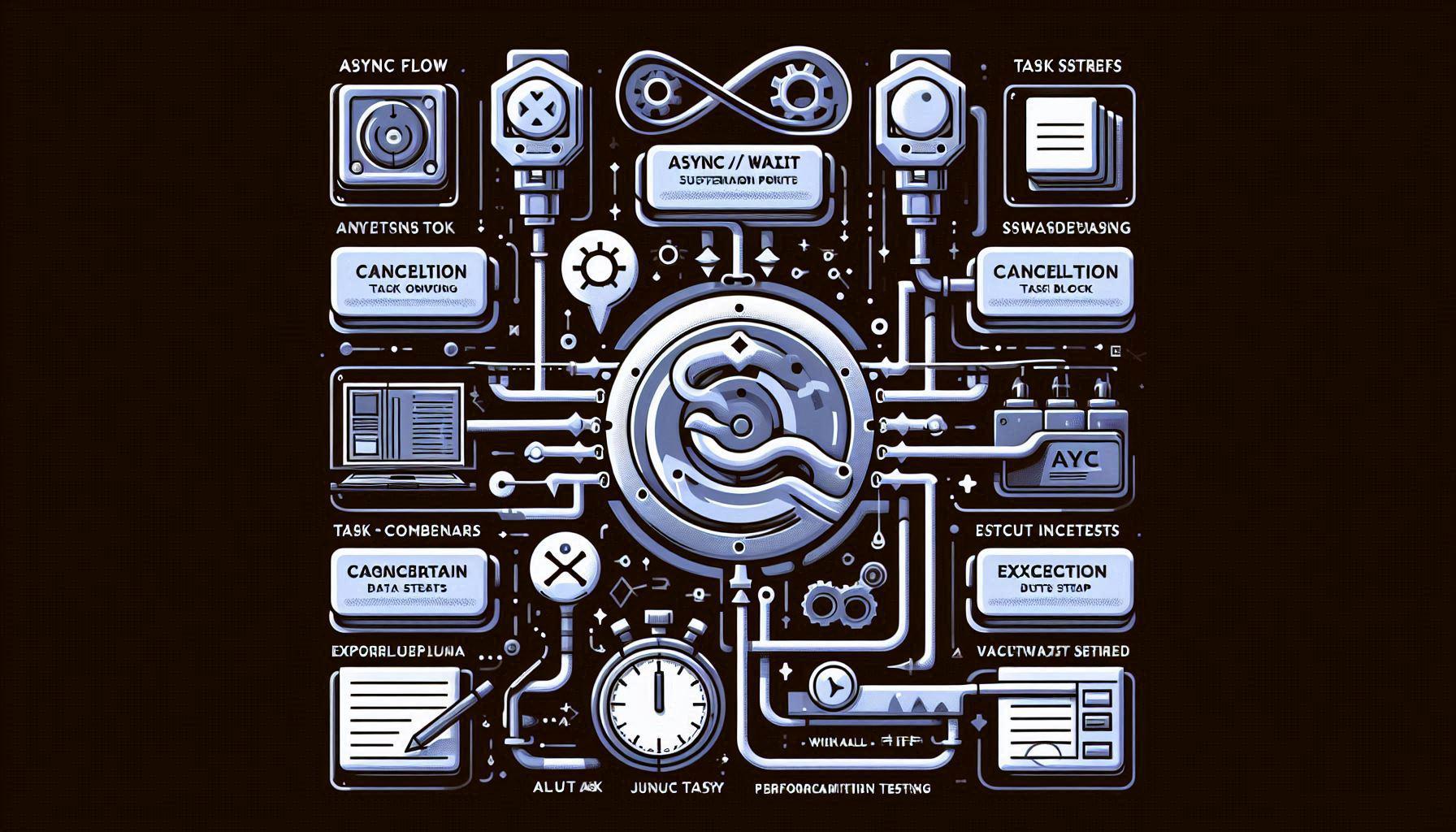Mastering Asynchronous Programming with C# async/await

Complete 7-Part Series
Series Navigation
- Part 1 – Introduction
- Part 2 – Deep Dive (Releases 2025-09-24)
- Part 3 – Pitfalls & Best Practices (Releases 2025-10-01)
- Part 4 – Patterns (Releases 2025-10-08)
- Part 5 – Real-World Use Cases (Releases 2025-10-15)
- Part 6 – Advanced Topics (Releases 2025-10-22)
- Part 7 – Testing & Debugging (Releases 2025-10-29)
Asynchronous programming is one of the most powerful features in modern C#. It keeps your applications responsive, scalable, and efficient — but it can also be tricky to master.
This 7-part series takes you from the basics of async/await to advanced scenarios, pitfalls, and testing strategies. Each part builds on the previous one with clear explanations and practical code samples.
📚 Table of Contents
Part 1: Introduction to Asynchronous Programming
Why async matters, the difference between blocking and non-blocking code, and your first async/await example.
👉 Read Part 1
Part 2: Deep Dive into async and await
The anatomy of an async method, return types (Task, Task<T>, void), and how await really works.
👉 Releases 24 Sep 2025
Part 3: Common Pitfalls & Best Practices
Avoiding async void, handling deadlocks, using ConfigureAwait(false), and safe exception handling.
👉 Releases 01 Oct 2025
Part 4: Patterns with Async
Running multiple tasks in parallel, cancelling with CancellationToken, using async streams, and implementing timeouts/retries.
👉 Releases 08 Oct 2025
Part 5: Real-World Use Cases
How async improves real apps: calling APIs with HttpClient, async file I/O, EF Core queries, responsive UIs, and background services.
👉 Releases 15 Oct 2025
Part 6: Advanced Topics
Performance with ValueTask, writing custom awaiters, using coordination primitives (SemaphoreSlim, Channel), and tuning async performance.
👉 Releases 22 Oct 2025
Part 7: Testing and Debugging Async Code
Writing async unit tests, mocking async methods, debugging with Visual Studio async tools, logging async flows, and handling unobserved exceptions.
👉 Releases 29 Oct 2025